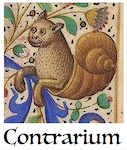Anti-travelogue: Ukraine
I have never been to the Ukraine, and I know very little about its history, so unfortunately, contrary to most people on social media, I cannot tell you much about the country or whatever is happening there right now.
It is interesting that this happens just after the Olympic Games and when most countries are scrapping their Covid regulations, at least for the time being. Putin met with Xi Yinping from China just before the games. It’s very likely that they talked about this already (“You support me on Ukraine and I support you on Taiwan”?)
There are many Ukrainians and Russian immigrants living in the eastern part of Germany. Most Russians I know seem to be pro-Putin, but I don’t know what Ukrainians who live here think, and I doubt they are very much pro-Putin (unless they come from the more pro-Russian part on the East). It is a complicated issue. The Ukraine has only been an independent country since 1991. It was part of the Soviet Union before it, and of the Russian Empire before that, although some parts belonged to Poland too.
A friend of mine, a Swiss writer and photographer, Anne Urech, lived in the Ukraine (Lviv) for several years. It seems a beautiful city. She wrote a short story about a mythical version of that city during Soviet times, which can be read here in Geist magazine number 2.
She is understandably worried about her Ukrainian friends. Many people are leaving Kiev and other cities. Since there is a mandatory military draft, adults are supposed to join the army and go to war now. Hopefully this will not last long. I doubt that they can do much against the Russian Army, and the current West-backed government is unlikely to last for very long at this rate. Of course, if NATO and the US enter into the conflict, it can become even worse, as it will become a world war instead of a local civil war. I hope for the sake of everyone that this does not happen.
Canada’s Trudeau already complained of “authoritarianism” (days after beating up his own peaceful protesters and freezing their bank accounts) and sent a few hundred soldiers and gave money and weapons to the Ukraine, but it seems to be just a symbolic measure. It’s not clear what Biden is doing. Hopefully he won’t escalate the situation even more.
Germany seems to have given up on Nordstream 2 as part of their sanctions. Gas and electricity prices already increased in the country and will increase more. Food prices are also increasing, not just in Germany, but worldwide. The stock market basically crashed. Things are not looking so great right now.
Nikolai Gogol is perhaps the most famous writer of Ukrainian origin (the Ukraine, at the time, was part of the Russian Empire). He had Cossack ancestors and identified with the Cossacks, who inhabited mostly in that region where for many years they had a protectorate, but he lived most of his adult life in Saint Petersburg. He was ambiguous about his identity: “I don’t know whether my soul is Ukrainian or Russian,” he wrote. “All I know is that I would never give preference to someone from Little Russia or to someone from Russia.” (“Little Russia” is a reference to the Cossack protectorate in central Ukraine.)
Perhaps the best we can do now is to hope and pray for peace to come shortly to the region, and for things to quiet down. I will leave you with some photographs by my friend Anne Urech, who lived in Lviv, but is currently very far away from it all, in Lima, Peru.
Note: is it Ukraine, or “the Ukraine“? It seems that originally Ukraine meant “borderland” in Russian, so that’s why it was called “the Ukraine”, as in “the Borderland”, but now that is no longer politically correct, and just “Ukraine” is more common.
P. S. Another famous Ukrainian-Russian writer is Anna Akhmatova (well, although she’s mostly seen as Russian, she was born in a small village near Odessa, which is now in Ukraine. But she grew up and lived near Saint Petersburg, and there she went through the Russian Revolution, the Leningrad (St. Petersburg) siege, and the Stalinist terror — she herself was censored and her son was arrested for 10 years in a Siberian gulag). She wrote many beautiful poems, but I will leave you with this one, which seems apropos, “How can you bear to look at the Neva? ” (Neva is a river in northwestern Russia near Saint Petersburg). The poem is from 1914, when World War I was starting.
How can you bear to look at the Neva?
How can you bear to look at the Neva?
How can you bear to cross its bridges?
Not in vain am I known as the grieving one
Since the time you appeared to me.
The black angels’ wings are sharp,
Judgment Day is coming soon,
And raspberry coloured bonfires bloom,
Like roses, in the snow.



